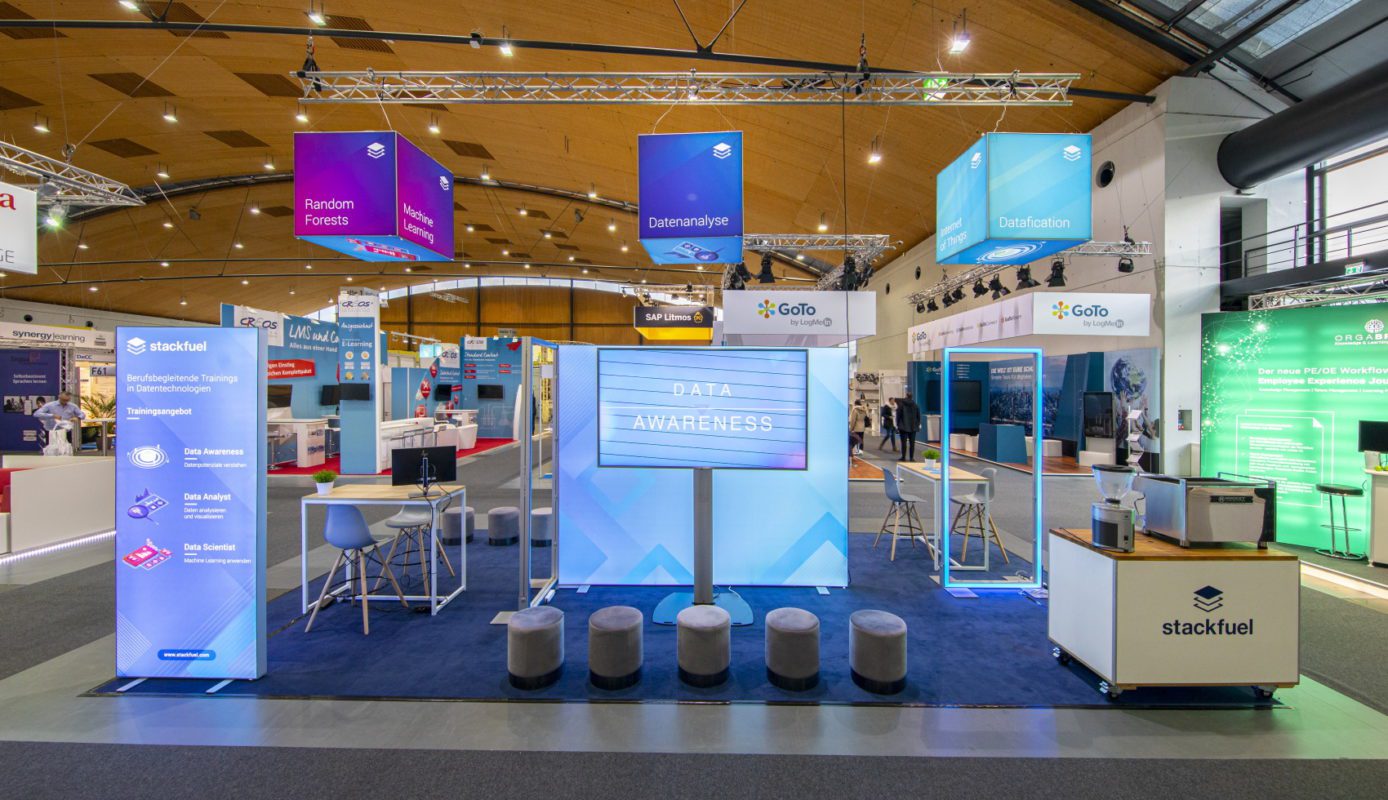What’s the point of exhibiting at big venues without knowing how to communicate your brand? Maybe you can achieve a couple of leads, but ultimately is it worth it if you’re investing a high budget on events and receiving a low revenue from them?
Exhibitions aren’t cheap, so it’s worth making the most of them and build brand awareness and recognition whilst presenting your services. We have put together 7 successful tips to communicate your brand in events that will help you be remembered:
1) Brand Identity
The first step to communicate your brand and be successful in events is to showcase your brand identity and make your company values clear. If you can’t define your brand, then how can your customers understand what you do – let along quickly and easily?!
Elements such as logo, fonts, colours, imagery, tone of voice, messaging and values must be consistent and shown on your promotional material. All of them have to work together, and if some of these elements aren’t connected or are inconsistent, brand recognition can be highly negatively affected.
2) Build Trust Through Brand Consistency
Inconsistency is a business killer. The key is to keep a consistency between messaging, brand elements and the sales team that are exhibiting. All of these elements will need to be aligned to reach success.
Your staff will only have a few minutes to interact with the attendees and engage them with your services. However, this is not always going to be easy! We recommend creating an event strategy for the Sales and Marketing teams to use prior to, during and following events focused around communicating your brand, to ensure it is consistent between staff as well as the message they are presenting.
3) Avoid Branding Mistakes
Common branding mistakes can lead to very negative future results – hopefully, you can avoid making them, while you brand or rebrand your business.
Some companies think that a customised designed logo is too expensive, so they decide to buy already-made templates by online logo makers. We do not recommend this! Your logo should be reflective of your brand identity, and is ultimately how you present yourself to your customers. If you don’t invest in your brand, how can you expect your clients to?
4) Listen To Your Audience
Communicating your brand successfully at events doesn’t just depend on following a correct brand identity guideline or consistency in branding. Of course that’s important, but it’s more complex than that – your sales team will need to engage fully with your audience to offer the more appropriate product of service. What are their pain points? How can your company help them?
Although this sounds like it’s fundamental, you’d be surprised at how regularly we see brands giving almost template responses or advice. This happens particularly during the follow up phase when exhibitors haven’t made enough tailored notes about what a particular attendee spoke about, so can’t follow up with a more relevant communication post-event. If you get this right, you’ll already be demonstrating to potential customers you’re able to listen and advise according to their needs, not purely because you’re trying to get business.
5) Online Presence
When organising an event, using fancy screens to also showcase your services online can really benefit your business. Ensuring your online presence is up to date, compelling and relevant to your audience will help them quickly understand what you do and it adds a layer of credibility and professionalism.
Having an updated website and social media channels is essential to achieving a high brand reputation. So, once more, if you’re keen to successfully communicate your brand in events you have to take advantage of technology and showcase your expertise and knowledge. It also allows you to create a powerful and consistent online presence that will enable your staff to communicate with visitors prior to, during or after the event.
6) Think Outside The Box
Rather than telling your attendees about your brand, why don’t you show it to them? Make them a part of the experience. People remember how you make them feel, not necessarily all the details of what you tell them.
Participating in friendly conversations, providing unique gifts and playing fun games are great examples. They are many ways to communicate your brand without talking about your company. Making a fun and engaging event area. This will attract visitors and increase people’s interest.
7) Collecting Feedback and Reporting
Continuous learning is the key to success, so don’t forget to collect your visitors’ feedback to improve your performance at future events. Tracking your company’s exhibition performance will make your business understand which marketing activities contributed towards attracting visitors and what should you do to improve this.
Remember that the more you’re consistent with communication and truly agreeing on how to present your brand, you’ll increase brand reach and reputation, which will ultimately help your events.


